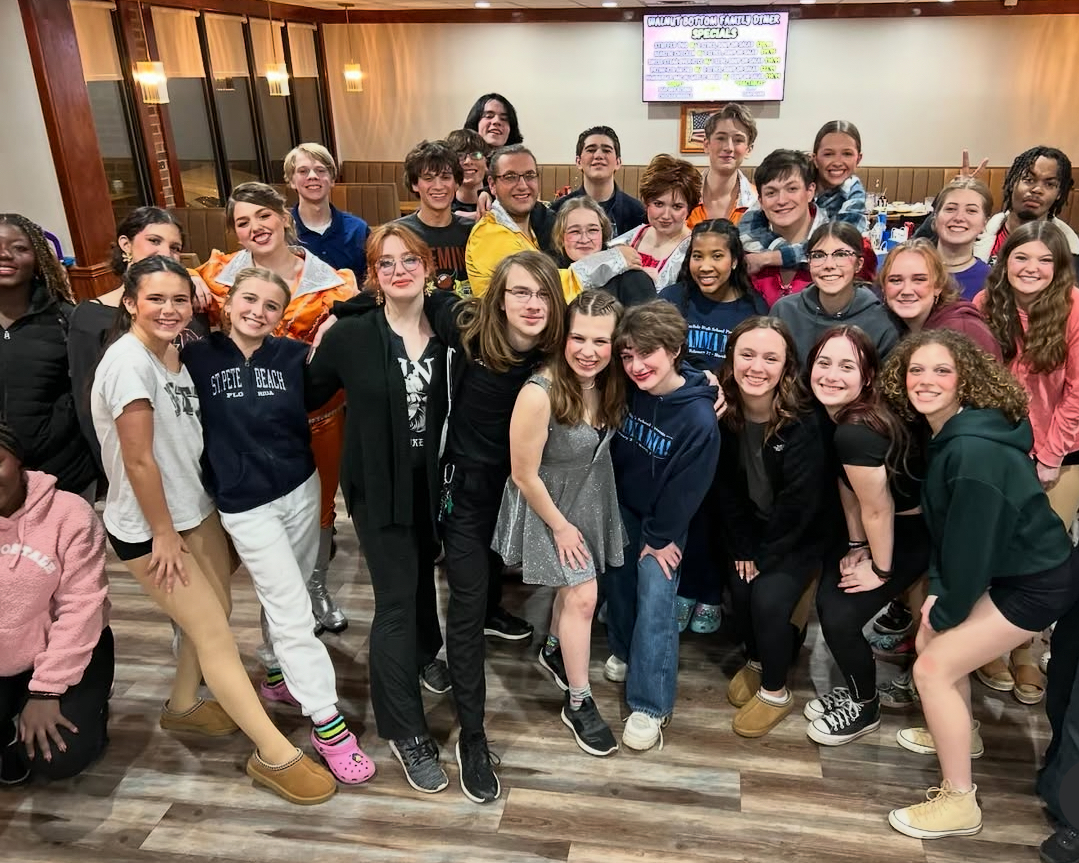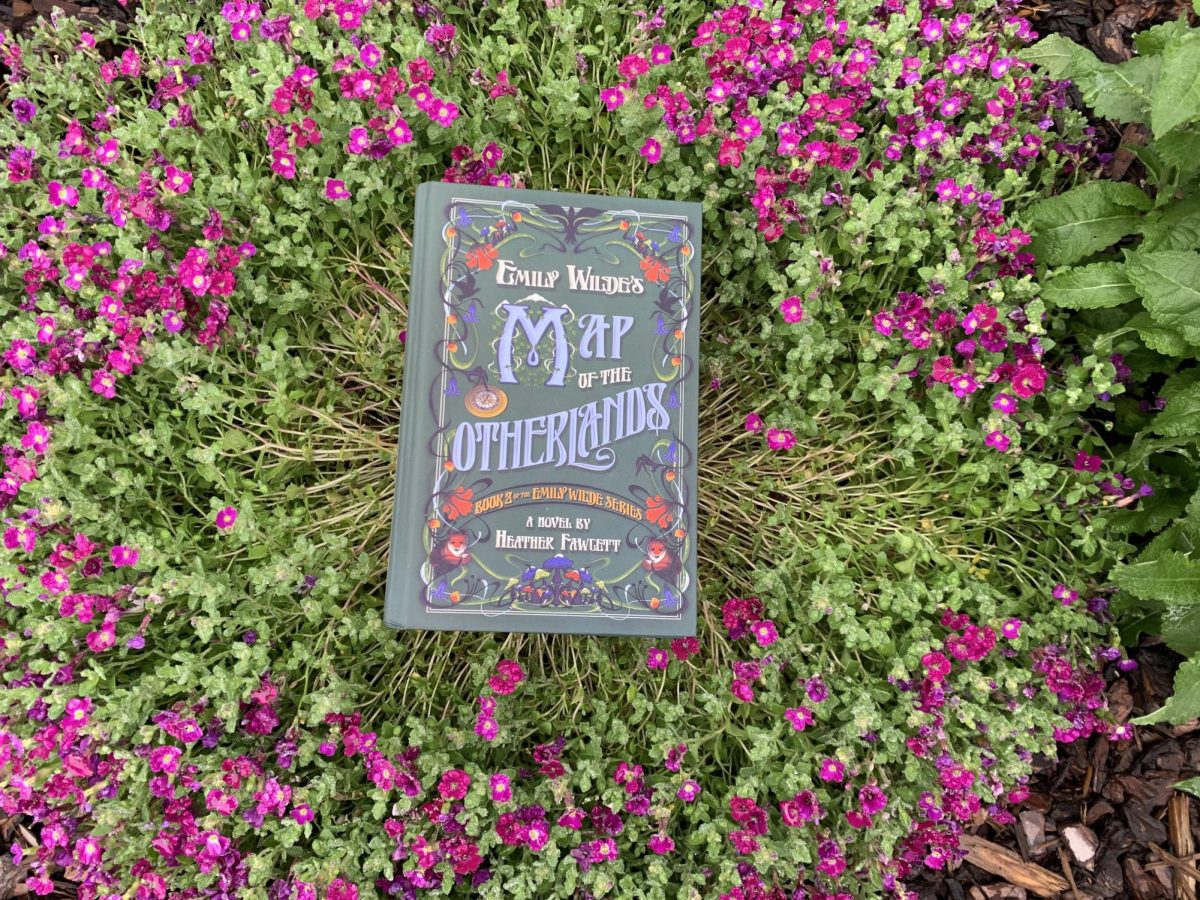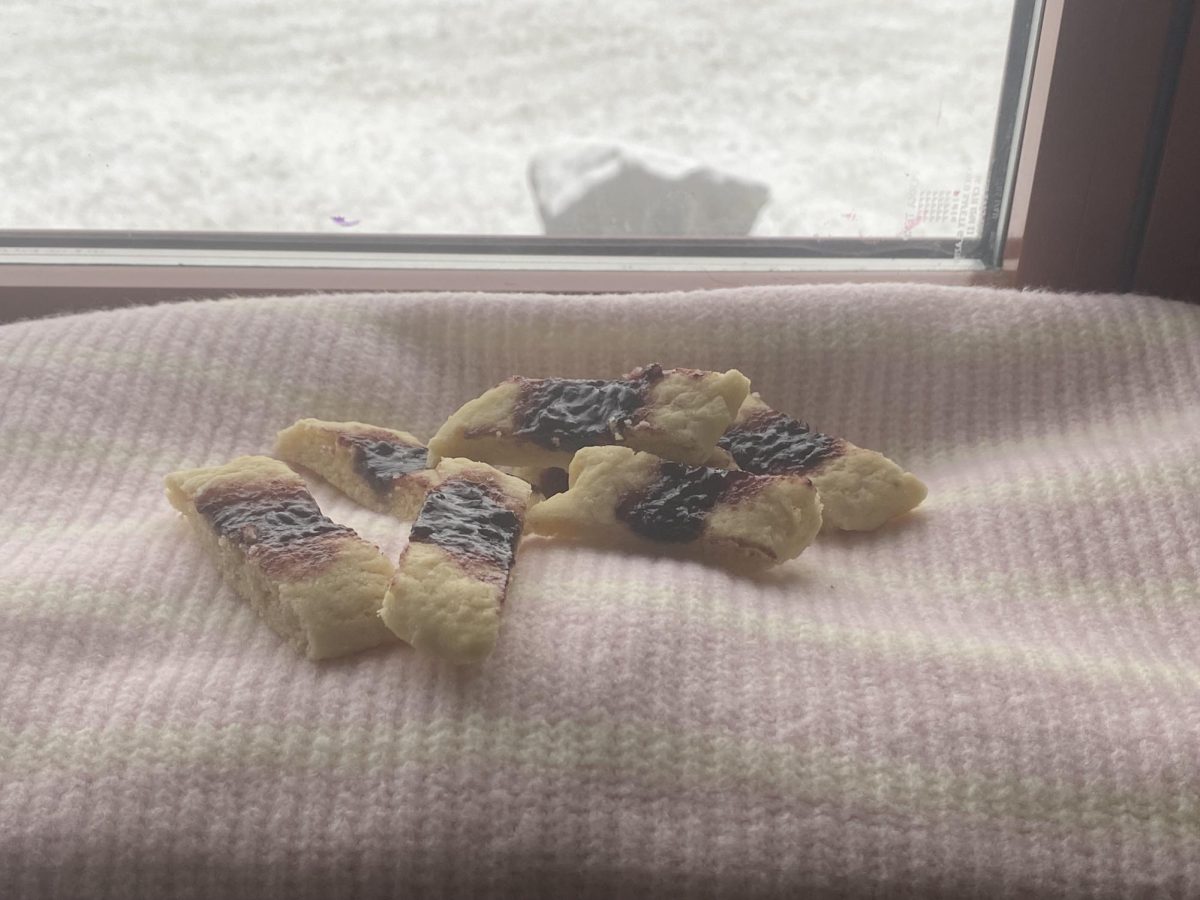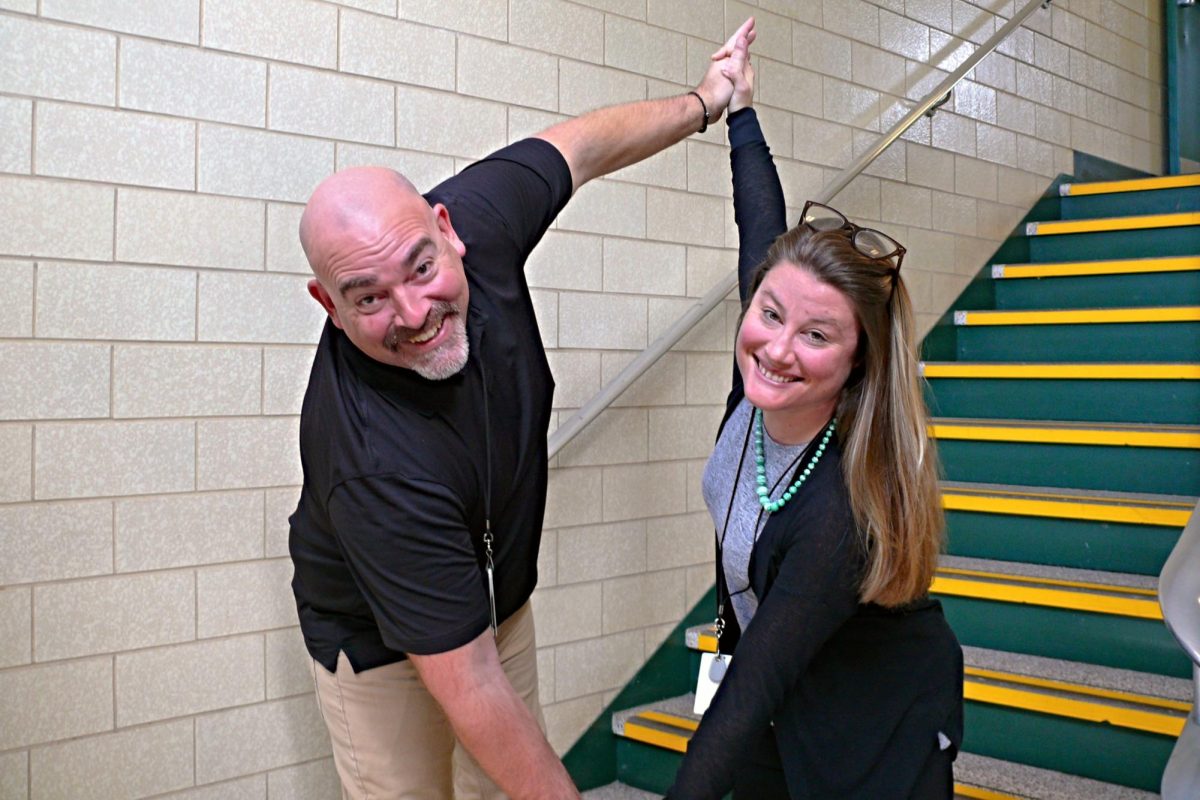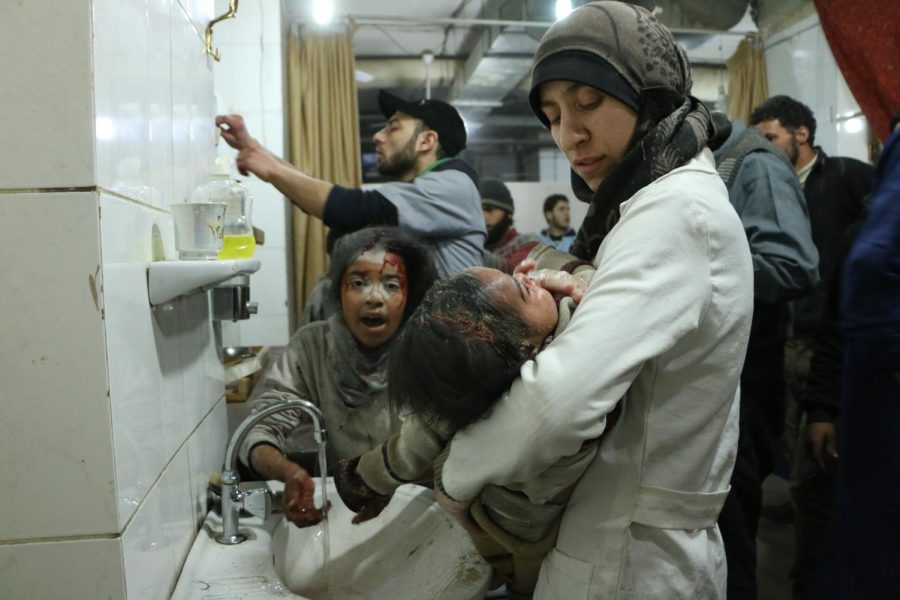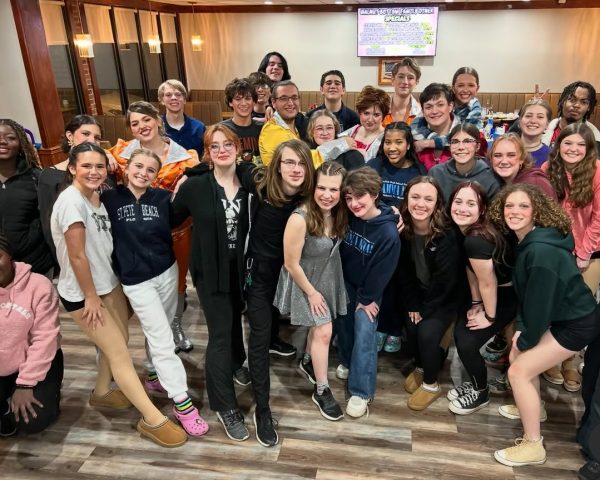A premiere event: ‘The Cave’ to be shown at Carlisle
Dr. Amani Ballour holds a sick child in her arms in this still from The Cave. The Cave, which focuses on Dr. Ballour’s work in an underground Syrian hospital, will premiere in Carlisle March 26.
In an effort to bring the struggles of refugees to the forefront of students’ minds and open their hearts to people outside of their current sphere, CHS will host one of many “premieres” of an award-winning documentary at the end of this month.
The screening of the Oscar-nominated feature documentary The Cave will take place March 26 in the McGowan Auditorium, starting at 7pm. Students and community members alike are encouraged to attend the event, which will discuss the struggles faced by civilian victims of war.
The Cave tells the story of an underground hospital in Eastern Al Ghouta, Syria, named “the Cave” by the doctors who work there in secret. Dr. Amani Ballour, a young female pediatrician, leads the doctors and nurses in saving the lives of the citizens above them whose lives have been torn apart by bombing and warfare, all while simultaneously fighting against a patriarchal society that looks down upon educated women.
“They risk their lives to save their patients and find ways to persevere in a world of cruelty, injustice, and suffering,” the press release for the film reads. “For Dr. Amani and her colleagues Samaher and Dr. Alaa, their battle is not only to survive but to maintain their dreams and hopes for their country and for women.”
CHS was selected by the producers of the documentary to show the film publically, as part of a special program to promote it. Kevin Wagner, the Carlisle Area School District Social Studies Department Chair, filled out the application to bring the film to the high school.
“The organization that produced the documentary reached out to groups and organizations hoping to put it out more than just its limited release it had,” Wagner said. “I made a response to them, and then from those responses, they picked targeted sites to do ‘premieres.’ We were selected as one of the sites to do one of the showings.”
When applying for the opportunity to show the documentary, Wagner emphasized the inherent diversity of the Carlisle community, as well as the area’s connection to the Bosnian War, another conflict that subjected thousands of people to violence and terror.
“We had to talk about the demographics of our area, so I used our school demographics,” Wagner said. “I’m assuming they were looking at the fact that we have a pretty diverse population within the school and the community itself. I talked a little bit about our very large Bosnian population and the fact that this kind of speaks to that too. You’ve got a group that’s going through warfare, fleeing their country and trying to go somewhere safe.”
The film screening on March 26 will also include opportunities to discuss the Syrian Civil War and how it affects civilians. In order to have a voice present at the event who has observed the events of the war, Wagner invited Col. TJ Foley to speak at the event.
“I went the route of putting it out to the U.S. Army War College, to see if we could get someone to kind of set the tone before we show it that night,” Wagner said. “We have a colonel [TJ Foley], who is actually going to do a fifteen-minute ‘setting the stage’ as to what was happening prior to the events of the documentary, and then will have a Q and A session after the documentary.”
Those who plan to attend the event should be prepared for intense scenes of violence and despair: in rogerebert.com’s review of The Cave, author Monica Castillo warned the audience that in some parts of the film, it feels like there are “more dead patients than live ones,” and described instances in which grief, loss, and horror consumes the audience watching the film.
That being said, critics seem to have come to a consensus about the film’s quality, as well as its ability to tell the story of this particular group of Syrian civilians. With a 97% approval rating on Rotten Tomatoes, and critics describing it as “a beautifully shot documentary that’s as stunning as the images are harrowing.”
Want to help the Herd? Please consider supporting the Periscope program. Your donation will support the student journalists of CHS and allow us to purchase equipment, send students to workshops/camps, and cover our annual website hosting costs.

Samantha Martin is super excited to share the role of Editor-in-Chief with Abigail Lindsay during her fourth year on staff! She is also a member of several...




